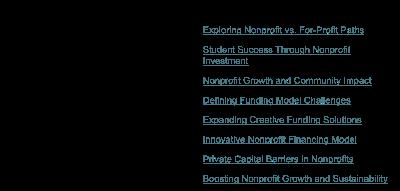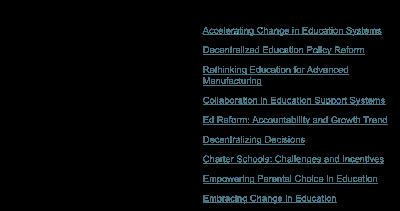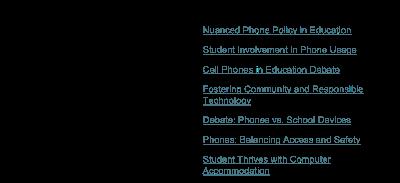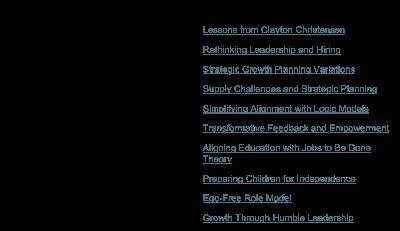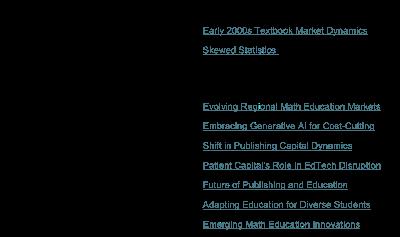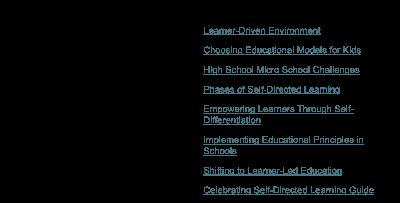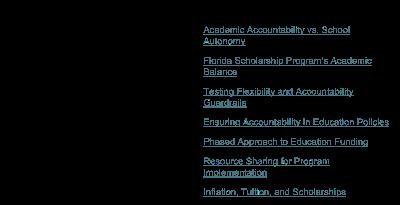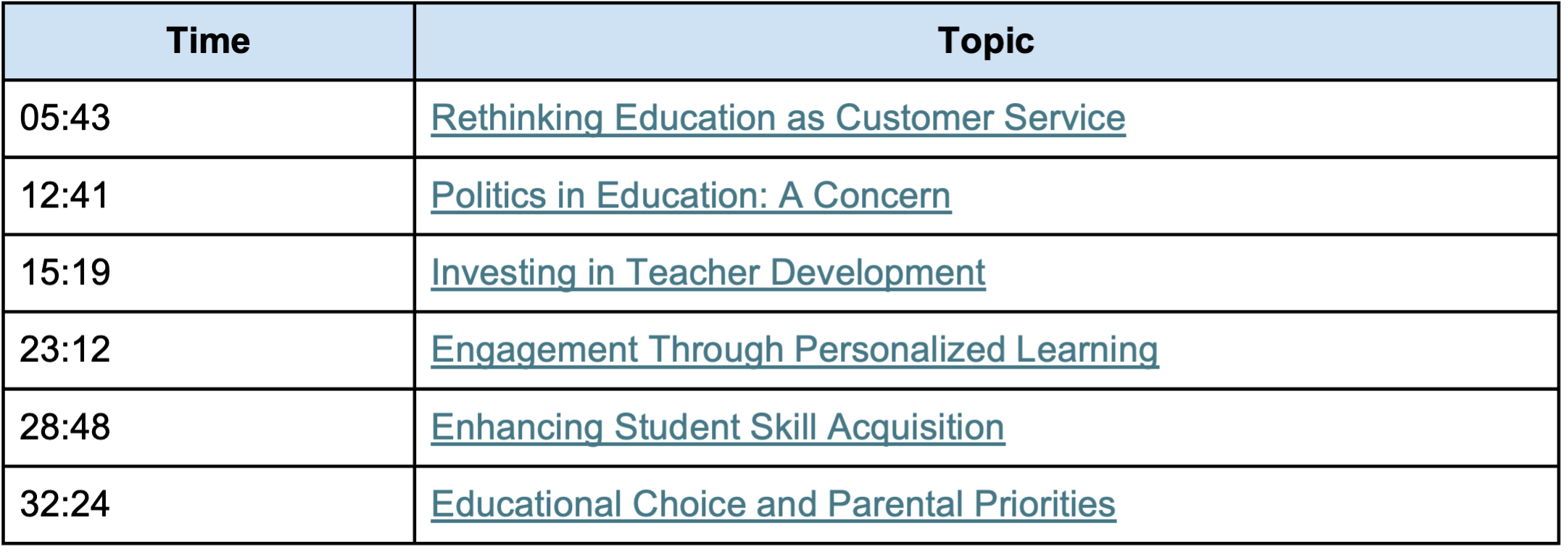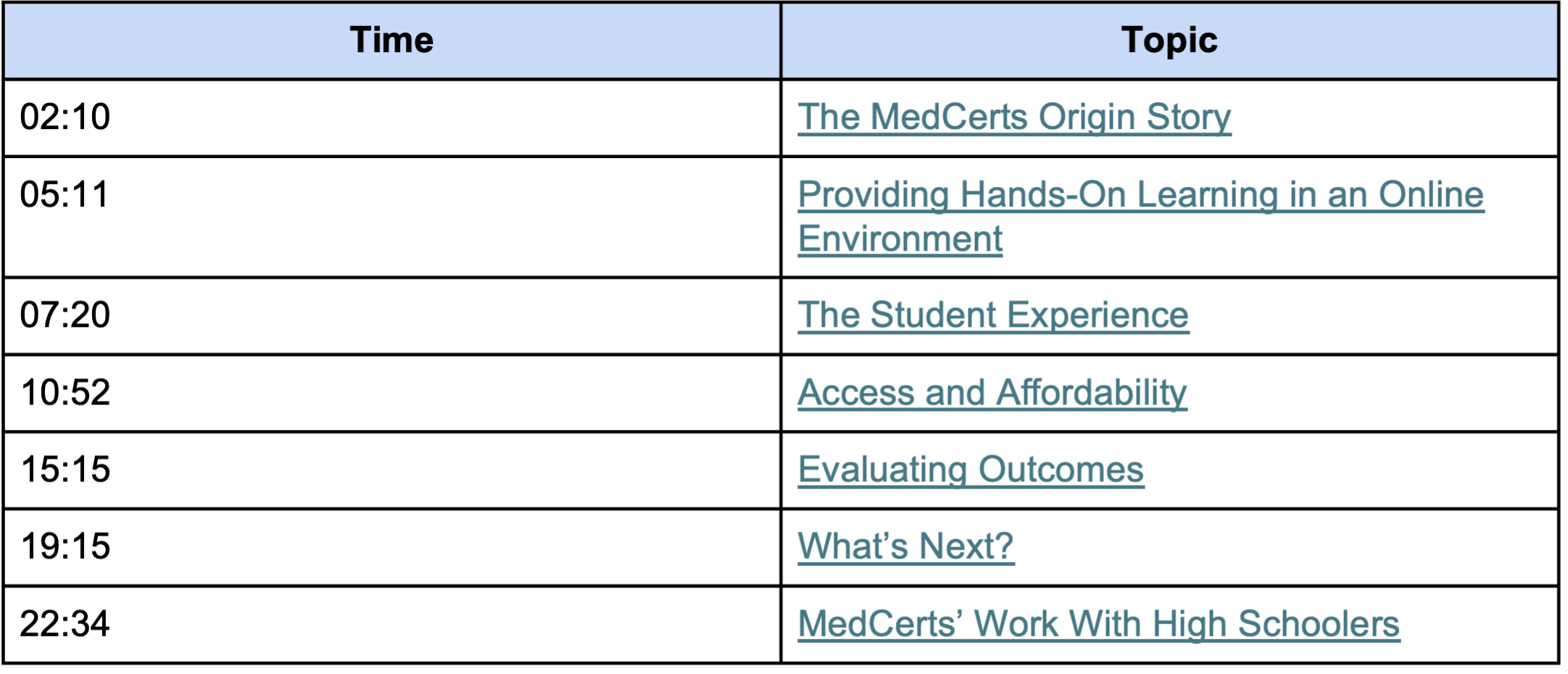Bringing Personalized Music Education to the Masses
Description
Lukas Barwinski-Brown, CEO of the Lang Lang International Music Foundation, joined me on this episode. For those who don’t know, Lang Lang stands apart as one of the premier pianists in the world.
Lukas shared his unexpected journey to leading the foundation and discussed its mission to ensure that music education is accessible to all children, regardless of their background. Lukas emphasized the importance of music education in developing children's cognitive skills and potential and highlighted the foundation's goal to create a lasting impact on both young musicians and communities in need.
And you’ll be really interested to hear just how they set up the program so that children can be part of a group but learn at a personalized pace. That’s something that will ring a bell to those who watched this past episode of the Future of Education where I used music to illustrate the absurdity of our lock-step traditional school system.
Michael Horn
Welcome to the Future of Education. I'm Michael Horn and you're joining the show where we are dedicated to creating a world in which all individuals can build their passions, fulfill their potential, and live lives of purpose. And to help us think through how we get there today, I'm delighted we have Lukas Barwinski Brown. He's the CEO of the Lang Lang International Music Foundation. If folks don't.
In my humble opinion, Lang Lang is the greatest living pianist at the moment. And Lukas leads the foundation and it is just a thrill to have you. Lukas, thanks so much for being here.
Lukas Barwinski-Brown
Thank you very much for inviting me. I am very, very honored and very happy.
Michael Horn
Well, I am delighted as well as listeners know, I was an aspiring pianist at one point, so I love highlighting music education. Before we get into the work of the foundation, I would just love to hear about your own personal journey to the work. You know, how does one get to become president of the Lang Lang International Music Foundation? Not that this former pianist is jealous or anything like that, but I would just love to hear about your journey.
Lukas Barwinski-Brown
Yeah, the journey was practically my life journey. It was very, very full of surprise and very unexpected, to be honest. And the, the same, the same way I, I, totally unexpected. I practically, am, I landed here in the USA and everything has started, I think I will say around 25 years ago when I met Lang Lang and as a head of Universal Music in Austria, so I was running Universal Music in Austria, classic and jazz and, and I met this young guy, nobody know him. He was like, this was not the Lang Lang from today. This was really a different Lang Lang. Very young, very, very inexperienced. And we became really a very close friend. And this friendship practically was cherished, you know, for many years.
And, one day, I will never forget this, this was my birthday. And he came to celebrate my birthday with his mom in Vienna. And she was, all the time, half of the dinner, he was talking with him, his mom in Chinese and using all the time my name. And so I was like, what the hell is going on? Why, what are you talking about? And he said, please, can you come to New York and run my foundation?
Michael Horn
Oh, wow.
Lukas Barwinski-Brown
And yeah, this was like, this was my reaction. Exactly. Wow. And we spoke very, very often about the foundation before and I was always pushing him to do the foundation because, I think and I believe that foundation can be really his very big legacy. And you know, and then unexpectedly, he asked me to run this. And as crazy as I am, you know, I quit my job, I sold my house and I move over the ocean and, and came to New York. And without no experience and not knowing really what I am going to do.
And then I decided to exactly create this foundation together with him so that everybody will understand what we are doing. Especially I will understand what I am doing. And this is how this was the beginning and this is already 15 years ago.
Michael Horn
Unbelievable. So I want to get into the work itself. It's obviously very authentic to who you are, to who Lang Lang is, to his wife is, I might add, professionally. The quote that you all have is, we believe that all children should have access to music and music education regardless of their background or circumstances. You all work across geographies though we'll talk about the US perhaps in a moment, but also Europe, China. So tell us about the nature of the work of the foundation itself.
Music Education's Essential Impact on Kids
Lukas Barwinski-Brown
Yeah. The mission is not only the slogan. It is exactly what we believe. And we believe practically and we are working on this and believe every day. And we believe that music education is really very important in children's lives. And also this is what I try to emphasize that music and learning music and music education is not just the hobby. It is not that we are teaching those kids how to play piano or how to sing or how to play guitar. We believe and this also scientists, scientific already proven that the children who are exposed to music and music education the brain is totally different constraint than the children who are not.
And so saying that those kids who are in our programs and we believe that we prepare them for the better academically life and as you probably know, our programs are in very disadvantage neighborhoods and we are going to those who need those program. So saying that we believe that we kind of like we are opening a better path for the future for those kids to, to, to finish the school and to, to, to go to the colleges and to make the better education for them.
Michael Horn
Yeah. And I love this. Not only changing the brain, but also developing, you know, executive function skills, et cetera, right through music that pervades the rest of their life. Is the foundation is the work that you do in these communities. Is it you giving grants to music educators or is it you all running specific programs? How does it work on the ground?
Lukas Barwinski-Brown
The grants will be the easiest way and we don't like the easy way. We created programs and the main, two main programs are practically addressed to totally two different groups, groups of people. The one is the education program which we call Keys of Inspiration. And this program is supporting the public Title One schools in the across the country. And the second program is kind of like 180 degrees on the other side is the Young Scholars program in which we are supporting the super talented kids, the, I am always saying, those, you know, 10, 11, 12 years old who practically can play already with the orchestra at Carnegie Hall.
So, you know, so those two diametrically different programs, you know, practically are, cover the 360 degrees. Because here you have this, the kids in needs and here you have those, those talented. And both groups are really, you know, very important for us. So asking, answering your question, no, we are not giving grants in either of these programs. So what we are doing, for example, for the Keys of Inspiration, it is also the most expensive program in the foundation. We are bringing to the school a piano lab. So when I create this program, I was thinking, how is this possible that the entire class of 30 kids can learn piano? You know, piano usually is one to one, one professor, one kid. Otherwise, you know, the professor will make the suicide after, you know, 10 minutes of everybody are bumping on the pianos.
Right? So I was like thinking, you know, how is this possible? What, what can we do? How is this? Because we cannot of course making this one to one piano lessons in the public school schools. So I was thinking about how I learned languages. I was going to the piano, to the language labs and everybody, you know, the entire class was sitting with their headphones that they were learning the language and they said, this can be exactly the same way with the piano. And I contacted Roland, the very, you know, fantastic piano producer, and we were discussing this and they said, yeah, this is a fantastic idea. Why are we not doing this? We can build a piano lab where 30 kids are sitting front of the keyboards and everyone has own and they are connected to each other. They have the headphones and they can play. And this will be exactly the one class get the piano lessons in one hour. And this is how we created practically the Keys of Inspiration.
And when we are supporting the schools, we are bringing the keyboards, we are bringing the headphones, we are bringing the benches and learning materials and books, etc. Etc. We are also giving the support for the teachers and we are making the teacher training. And I think the biggest difference between us and you know, Michael, everybody in America has a foundation, right? So there are millions of foundation. But the biggest difference between us and those millions is that we are in the curriculum of every school. So we are not after school program, we are not preschool program or Sunday school program. We are exactly taking seriously as math, science or history. So this is, let's say spending what we are investing in the school.
And one of my co-worker, he made a calculation which I practically never did it, you know, and maybe this will be interesting for you. So Dan, who is also a teacher in, in one of our schools in Boston, he said, you



